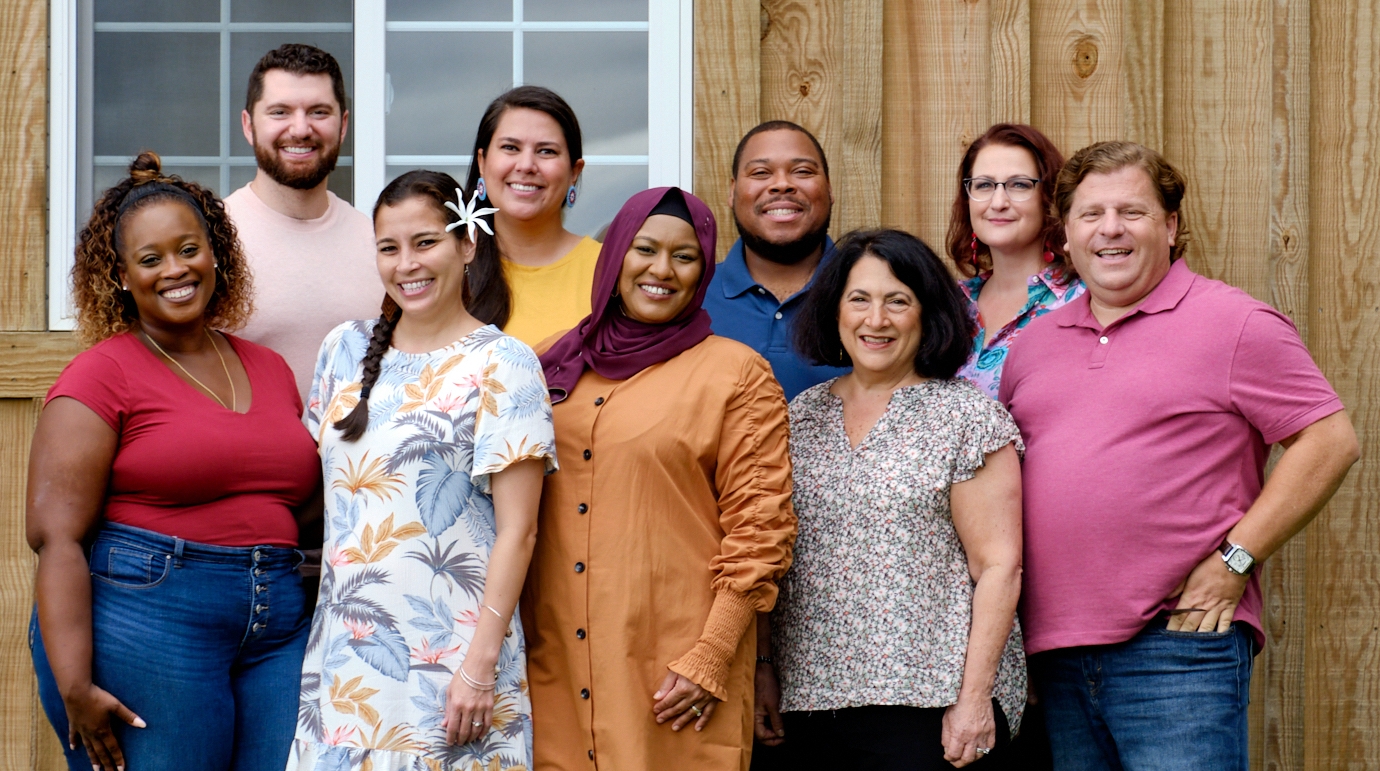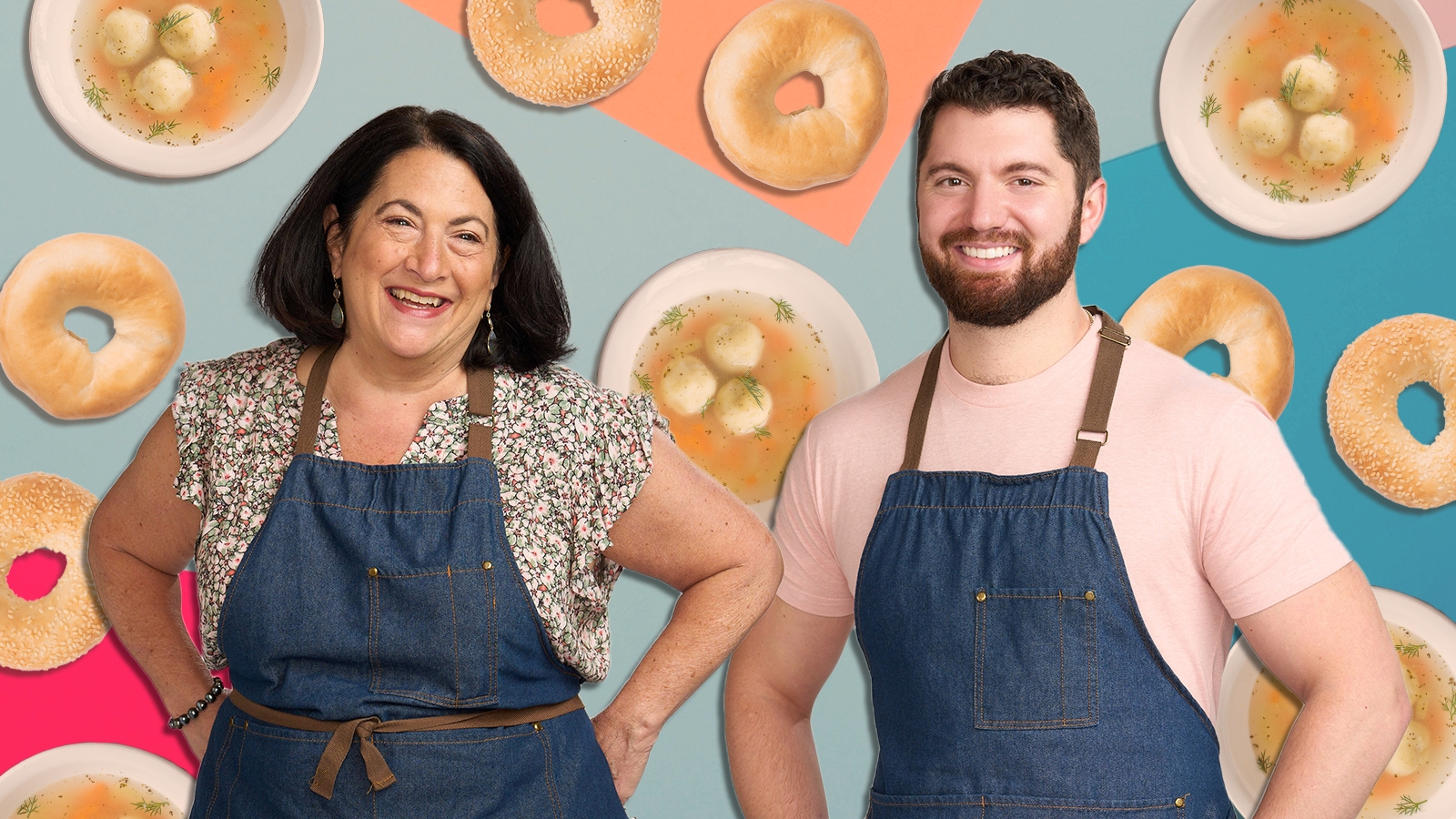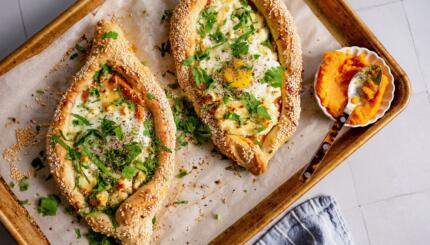What do you think of when you hear “American Jewish cuisine?” A bagel? Chopped liver? Whatever it may be, in PBS’s forthcoming series “The Great American Recipe,” premiering on June 19, two Jewish home cooks compete to show America how diverse the culinary palette of the U.S. Jewish community really is.
The premise of the series is simple: Nine amateur homecooks from across the United States compete against each other in a series of challenges that showcase traditional dishes from their respective heritages, in an effort to redefine what we mean when we say a recipe is “American.”
The two contestants, though both from Jewish ancestry, come from disparate backgrounds that have informed their unique styles of cooking. On one hand, Brad Mahlof is a born and bred New Yorker, whose cooking honors both his mother’s Ashkenazi background and his father’s Libyan Jewish background.
Mahlof got the attention of PBS through his Instagram page @cookingwithbrad (and brand-new blog cookwithbrad.com), where he can regularly be found serving up dishes such as slow-cooked shakshuka or a homemade bagel board with schmears.
The Nosher celebrates the traditions and recipes that have brought Jews together for centuries. Donate today to keep The Nosher's stories and recipes accessible to all.
“I guess through that, they [PBS] found my page and thought I might be a good fit for this show because I’m very passionate about Jewish food,” Mahlof told The Nosher. “And I also keep kosher, and I just wanted to show the world that kosher food can actually be really tasty.”
His fellow Jewish opponent on the show, Abbe Odenwalder, who he affectionately refers to as his “Jewish mom away from home,” was discovered through her blog “This Is How I Cook,” in which she catalogs familial recipes.
Odenwalder has Lithuanian roots, and is a first-generation American who grew up in the small town of Kankakee, Illinois, where Jewish food and ingredients weren’t readily accessible.
“I said to the people interviewing us [for the show]: ‘Look, maybe I’m not the best example, I don’t keep kosher, I didn’t grow up with family dinners, I’m not a New York Jew, I live in a small town…” Odenwalder told The Nosher. “But I think it just shows that we’ve all come from somewhere and yet somehow all identity as Jewish.”
Despite their differences, both contestants attribute their affinity for cooking to their family, from generationally inherited recipes to the ability to quickly improvise in the kitchen, learned by watching their loved ones cook. These skills feel inherent to Jewish cooking, as a lot of traditional recipes have depended on memory and survival.
However, many of these traditional dishes require slow cooking, which proved difficult to translate to a competitive reality television show format.
That said, Jewish food’s inherent adaptability also provided a great advantage.
“For Shabbat dinners, food has to sit out for a long time so you have to cook things that are a lot more forgiving… and, if anything, the longer it sits, the better,” Mahlof said. “I think that’s always good, because on a cooking show you have long periods of time where you’re waiting to get judged so things sit out and cook for longer.”

Just giving diverse Jewish food a large platform can naturally create a connection with viewers not as familiar with the community, along with just an exciting opportunity for Jews to see people like themselves on screen.
“Whether you’re Jewish or not or kosher or not, it’s just delicious food,” Mahlof said. “There’s so much hate in the world that food is a way to bring people together… all the overlap is OK.”
Some connections were delightfully unexpected:
“There was this one contestant from Guyana that made this dessert that looked exactly like a hamantaschen… and I was like, wait, that’s literally like a triangle pastry with a filling, but it’s just funny how much overlap there is even though its from a different culture’s cuisine,” said Mahlof.
With their different Jewish upbringings, Odenwalder and Mahlof appearing on a major network is so exciting. The show makes a conscious effort to show that both Jewish cooking and people are not a monolith — that there’s more than one way to make “Jewish” food. Hopefully, this season of “The Great American Recipe” can move the needle forward in celebrating the connectivity and cultural sharing that comes with cooking food from your family history.
Season 2 of “The Great American Recipe” premieres June 19 on PBS, with new episodes every Monday.



